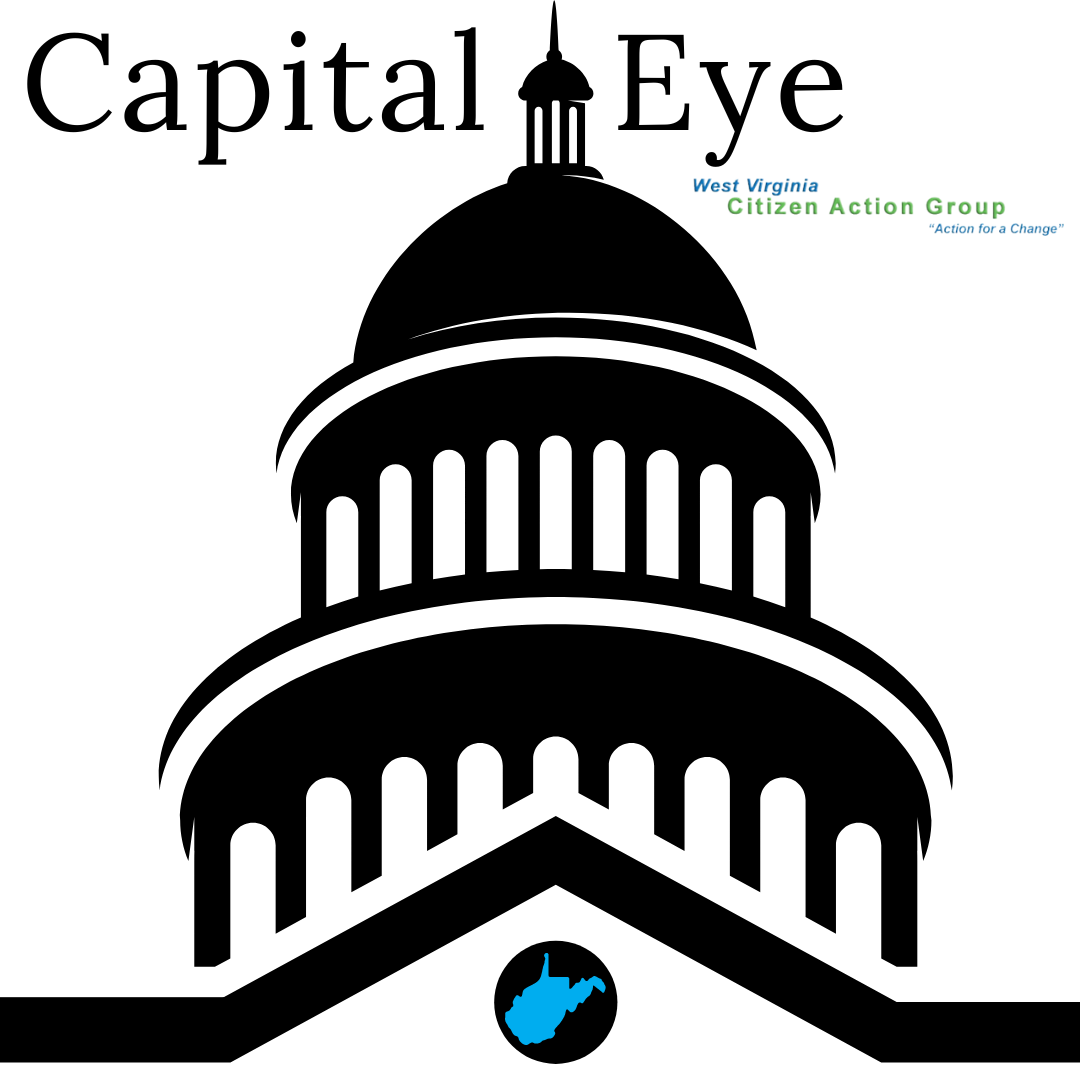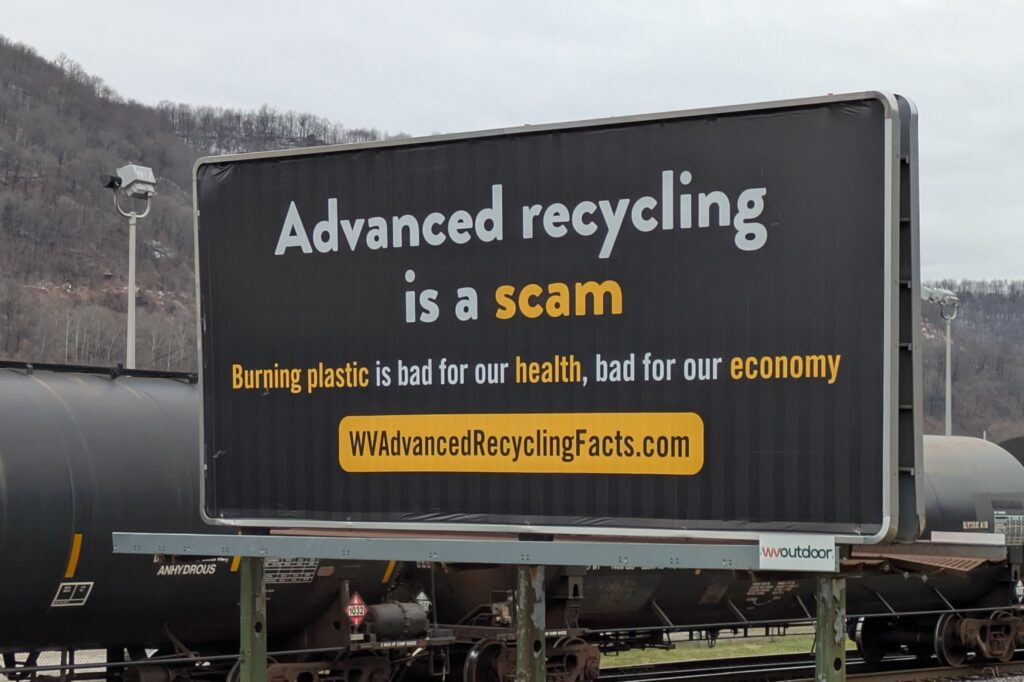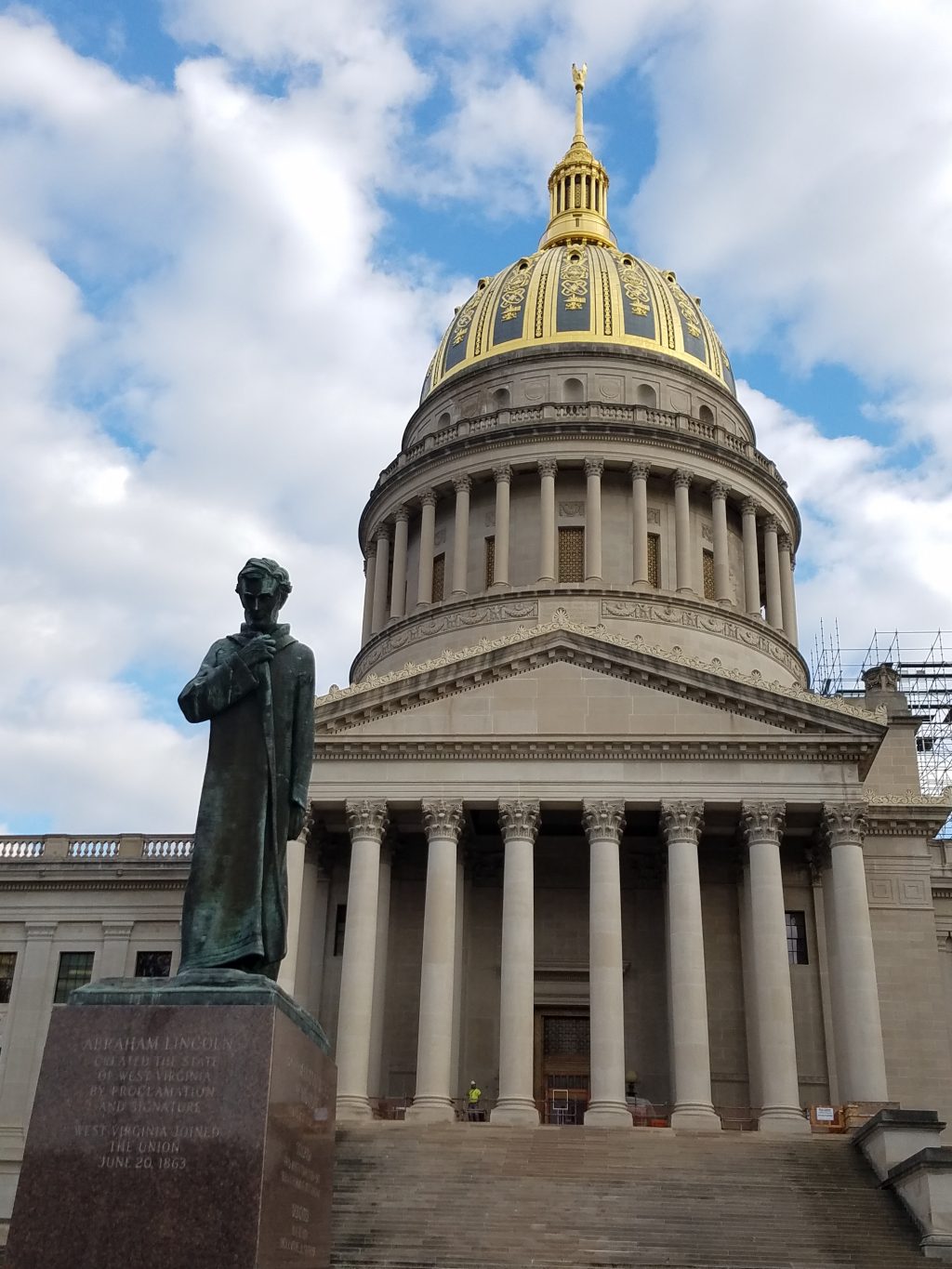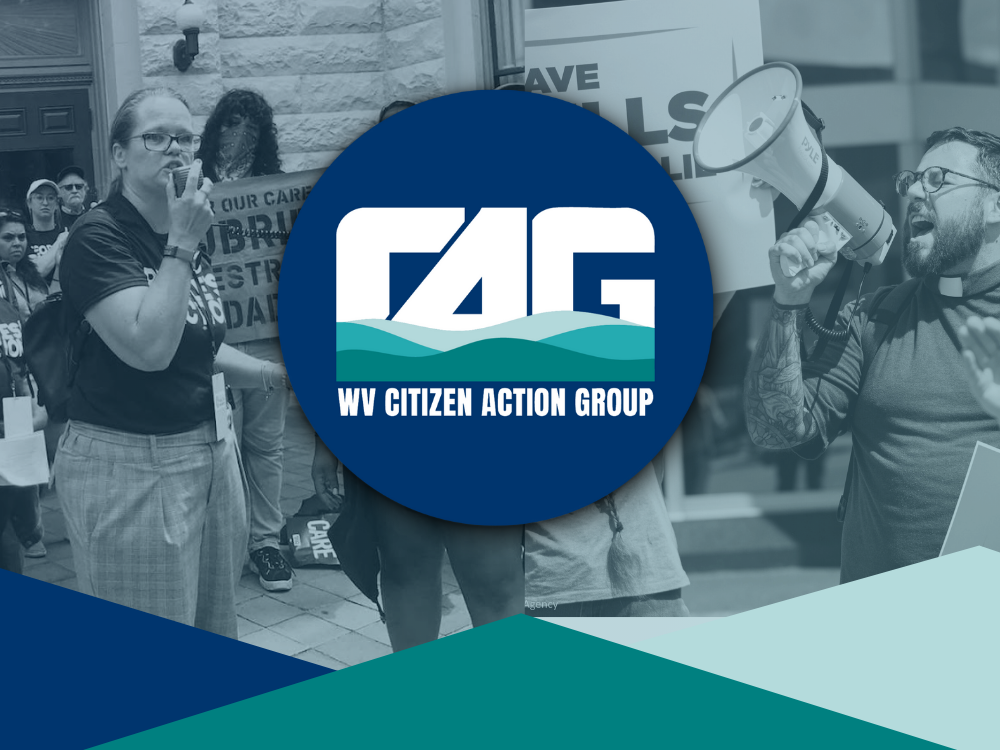- Like
- Digg
- Del
- Tumblr
- VKontakte
- Buffer
- Love This
- Odnoklassniki
- Meneame
- Blogger
- Amazon
- Yahoo Mail
- Gmail
- AOL
- Newsvine
- HackerNews
- Evernote
- MySpace
- Mail.ru
- Viadeo
- Line
- Comments
- Yummly
- SMS
- Viber
- Telegram
- Subscribe
- Skype
- Facebook Messenger
- Kakao
- LiveJournal
- Yammer
- Edgar
- Fintel
- Mix
- Instapaper
- Copy Link
Capital Eye Update: Wins and Losses
Wins and Losses
By Gary Zuckett
This past week was a mixed bag of wins and losses. In the House, a broadband access bill was passed, stricter voter ID requirements were rejected and automatic voter registration (AVR) was saved. In the Senate, the tank bill passed, and the Cancer Creek bill is advancing. A medical cannabis bill was passed by the Senate Health and Human Resources (HHR) Committee, but consumers’ rights are threatened by attacks of the Bank Bandit Bills pending in the Senate Judiciary Committee.
On the federal scene, a health care disaster was narrowly averted when the House failed to pass TrumpCare. That was the day we helped organize vigils outside all four of Sen. Capito’s state offices and those of several of our Congressmen. The picture below was taken outside the old Daniel Boone Hotel where we paid a visit to Congressman Mooney’s office on Friday to tell him to not to vote to take our health care away.

Crossover Day
The legislative process is full of arcane procedures and rules. One of the most feared is “Crossover Day” which this year comes on Wednesday, March 29th. At the end of this day, any bills (except budget or appropriations bills) which have not passed out of its house of origin is finished, kaput, and dead. Hence there is a rush in both houses to get ‘must pass’ bills moving. This results in weekend floor sessions and early morning and late night committee meetings. Julie and I were in a Senate Judiciary meeting until 10pm this week. All of us were there most of the day on Saturday and we hear some committees may reconvene Sunday evening to move bills through the process. Pass the caffeine…
We Already Know How We’re Voting?
The rush to beat Crossover Day can degrade the deliberative process. When the Senate Government Organization Committee ran out of time (that day) during consideration of SB 408, killing off civil service protections for state employees, the chairman told the American Federation of Teacher’s representative to sit down in the middle of Q&A. He then announced that since “we already know how we’re voting,” he called for a vote and they passed the bill on to the Judiciary Committee. What happened to letting all sides have a voice in the democratic process of policy debate?
This bill will send our state government back to the bad old days of the spoils system where every elected official operated a ‘mini-kingdom’ and they doled out jobs to friends and family. Senator Facemire remarked about the days when, in order to get a state or county job, your application would have to be endorsed by the appropriate political party official! Public employees already endure minimal pay and shrinking benefits which is why we have such low employee retention and lots of unfilled positions. Now they’ll have zero job security too? Not a good way to ‘fix’ state government!
Cancer Creek Creeps Forward
HB 2506 was booted out of Senate Judiciary in a late evening meeting after a Senator favoring the bill ‘called the question’ which again cut off debate and went straight to a vote. The bill to allow more toxins and carcinogens in our rivers is now nearing final passage on the Senate floor early in the coming week. There is still time to call your senators to tell them you want them to flush the dirty water bill! Thanks to all those who came out to an early Saturday vigil outside the Senate to protest 2506! See Valerie’s article below for more on the protest and how you can make your voices heard by the Senate.

 Cannabis for Medicine
Cannabis for Medicine
SB 386, which would legalize medical cannabis, made a surprise move out of Senate HHR on Thursday despite the Chair and Vice-Chair voting no on a call for yea’s and nay’s. This came after the Chairman called the first voice vote in the negative and then a second vote was forced making members raise their hands to be counted. This is a big move toward patients’ freedom to make use of this beneficial medicine! Calls to members of the Senate Judiciary (especially Chair Senator Trump) are needed to have it placed on their agenda ASAP or it won’t make it through Crossover Day on Wednesday.
I wish I knew why the same lawmakers who always want to legislate their religious beliefs, also want to continue the ban on this one member of the plant kingdom as one of God’s terrible mistakes? It seems rather blasphemous for them to assume they know better than their creator. “…let the herbs of the field be your medicine.”
Schools and Taxes
SB 609 will force county school boards to raise their levy rates on property owners by cutting 79 million from the funding schools now get from the state. What a way to help balance the state budget without ‘raising taxes’ – make us all pay more on our property taxes.
Emergency Budget Beacon
The latest chapter in the Budget Wars has the governor throwing the switch on the emergency beacon lights in the tower on the top of the Capitol dome. Then he recorded a live video chat blasting legislative leadership for proposing 50 million in cuts each to Medicaid, state universities, and public school funding instead coming up with revenue to fill the budget hole.
Meanwhile, the tax reform package (SB 335) that rearranges the deck chairs has made it out of its Select Committee into Senate Finance. This is the one we wrote about previously that will cost the average taxpayer an additional $1,000 yearly in ‘consumption tax’ while giving those at the top $20-30 thousand a year in tax breaks. They’re calling it ‘revenue neutral’. We’re calling it highway robbery!
Protect West Virginia
We’re working with our allies at the WV Center on Budget to hold a series of Town Hall meetings next week to alert citizens to the danger and misery looming ahead if the state leaders fail to come up with new revenue and instead resort to draconian cuts to social and educational services. Go to ProtectWV.org and use their budget calculator to create your own balanced budget, choosing what to cut or what new revenue to generate. Then, go to the action page and call your legislators to tell them we need more revenue – that we can’t cut our way to prosperity!
Thanks for YOUR Revenue!
It takes constant revenue to keep WV Citizen Action going too. We’d like to thank every one of you that has taken the time to become a supporting member on-line or through the standard postal route to 1500 Dixie St, Charleston WV 25311!
Foundation grants cover much of our issue work but foundations won’t let us spend their money lobbying lawmakers. That support comes from you and it is critical to our ability to advocate for cleaner air & water, fair taxes & elections, consumer protection, and renewable energy to make our state better for us all. Please take a minute now to sign up as a contributing member and thank you in advance!
Campaign Finance Bill Would Weaken Disclosure, Increase Money in Politics
By Julie Archer
On Tuesday, the Senate Judiciary Committee advanced a major campaign finance overhaul bill (SB 539) that would decrease disclosure of political spending while also increasing the amount of money that can be given to the candidates, political action committees (PACs), and political parties. The full Senate debated a number of amendments to the bill on Saturday before advancing the bill to passage stage with further amendments pending. A final vote on the bill is scheduled for Monday.
Although SB 539 increases disclosure in some small ways, like requiring PACs and entities making independent expenditures to file reports electronically, the overall effect of the bill is a weakening of disclosure while allowing more money into a broken system that favors the wealthy and special interests. For example, the bill would require less disclosure for spending on independent expenditures by raising the thresholds that trigger reporting and disclosure of contributors to groups making these expenditures. In addition to weakening some of our current disclosure requirements, the bill also creates new loopholes and worsens existing ones that make it possible for groups that spend money on political ads to hide the identity of their donors.
At the same time, the bill increases the amount of money that can be contributed to candidates by nearly three times, the amount of money that can be contributed to PACs by five times, and the amount the can be contributed to party committees by ten times. The bill also allows transfers of money between certain entities that aren’t allowed under current law.
However, the worst part of the bill is its failure to address the flood of secret money in our elections. Unfortunately, both the Senate Judiciary Committee and the full Senate rejected amendments offered by Senator Mike Romano (D-Harrison) that would have required disclosure of ‘dark money’ by closing the “covered transfers” loophole, which currently allows wealthy donors and special interests to funnel money through multiple PACs and organizations in order to obscure its origin. The amendment Senator Roman offered on the floor actually mirrored a bill (SB 541) passed by the Senate two years ago. Of the Senate’s current members, 18, including 12 Republicans, voted for that bill, but the vote on the amendment exposed their political posturing, as it was rejected on a mostly party line vote.
After rejecting the ‘dark money’ amendment, the Senate adopted an amendment offered by Senator Corey Palumbo (D-Kanawha) that preserves legislative findings used to defend our campaign finance laws, and leaves unchanged legal definitions that have been upheld and deemed constitutional by the courts. They also discussed an amendment offered by Senator Ron Miller (D-Greenbrier) that would close several loopholes in the bill, before delaying further consideration of that and other amendments until Monday.
We’ll continue to keep you posted
Fed up with Money in Politics? Take Action:
In the meantime, if you haven’t already, please contact your Senators and tell them to oppose SB 539. We need more disclosure in our elections, NOT more money! If we want to discourage negative attack ads, give candidates the ability to respond, and inform voters about who’s trying to influence their votes the best thing we can do is require those who are spending money on our elections to disclose the source of the money.
Stricter Voter ID Rejected, Automatic Voter Registration Saved
There is some good news to share. On Thursday, a House Judiciary subcommittee considering a bill that would have imposed stricter voter ID requirements on West Virginia voters (HB 2781) passed a revised version of the bill that maintains the wide variety of ID options allowed under the law the legislature passed last year. The watered-down bill also keeps automatic voter registration (AVR) in place, but gives the DMV more time (until July 1, 2019) to upgrade its computer systems and software, and implement the program. The later effective date also applies to the voter ID provisions of the bill.
The subcommittee’s recommendations were approved by the full Judiciary Committee and the House of Delegates is scheduled to vote on the bill on Tuesday. We’ll by keeping an eye out for any amendments that would undermine this compromise bill, and continue to keep you posted as it works its way through the Senate.
Thanks to everyone who called or sent letters to House Judiciary Committee members urging them to oppose voter suppression and save AVR! Speaking up makes a difference.
LEEP Act Leapt Out of the Senate to the House
by Emmett Pepper
The Local Energy Efficiency Partnership (LEEP) Act has gained momentum and your support to the House Government Organizations Committee can keep the momentum going.
LEEP could empower local commercial building owners to form a special kind of contract with a financing company to create energy efficiency upgrades to their building. The contracts permitted have two unique aspects: First, the debt will be repaid ahead of the existing mortgage (with permission of the mortgage holder). Second, the debt will stay with the building, not the building owner. This is important because it means that a building owner will not get stuck with a debt that it has to keep paying on even if it no longer owns the building. Commercial building owners can utilize this sort of contract if their local government enacts an ordinance allowing it.
The key benefits to LEEP-style financing are: 1. the energy saving is repaid equal to taxes in the case of a default, and 2. the payments are made along with property taxes, so whoever owns the building makes the payments. Thirty-two states have permitted LEEP-style financing.
Please Contact the Members of the House Government Organizations Committee and ask them to Vote FOR The LEEP Act (SB 480)
You can call or write to the members of the House Government Organizations Committee to vote for the LEEP Act!
Protest Outside the Senate Chamber: Say NO to “Cancer Creek” HB 2506
By Valerie Woody
Despite persistent efforts by WV Citizen Action Group and our partners, the West Virginia Senate is set to vote soon, likely Monday, on HB 2506 – sometimes called the “toxic water bill” or the “cancer creek bill.” Proponents of this bill have offered no evidence that it would provide any quantifiable job growth, benefit to the environment, or the people. And yet, it continues to move through the process.
Thanks to grassroots citizen activism, a protest was organized to make a final plea to our Senators to put the health of our communities ahead of a few extra pennies for polluters. We gathered on a beautiful Saturday morning to stand in front of the entrance to the Senate Chamber to confront the men and women set to soon decide whether more pollutants should be allowed in our waterways.

Hundreds of you have contacted your legislators to voice your opposition to this bill, but despite massive public opposition it has already passed our House of Delegates and now the upper chamber of our legislature appears poised to pass it. In fact, just Friday another bill deregulating above ground storage tanks (HB 2811) passed the Senate by a vote of 31-3. If our lawmakers refuse to abide by the loud and clear objections of their constituents, we will bring our message to them.

We have to continue to fight. Take a few moments now to contact your Senators and urge them to oppose HB 2506. It’s incredibly quick and easy to call your lawmakers, and the staff who answer the phones are often some of the nicest people I’ve spoken with on a phone call about politics. Simply ask to leave a comment for your Senator and briefly explain why you think they should oppose HB 2506. Leaving your contact information is often helpful as it lets them know you live in their district and gives them an opportunity to respond to your concerns.
Visit https://openstates.org/find_your_legislator/ and simply enter your zip code and/or address to find you Senators’ contact information.





